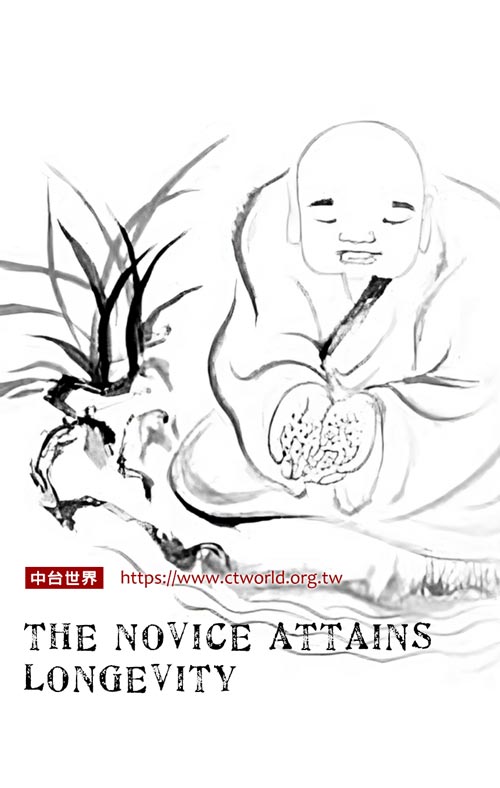
A long time ago, an arhat accepted a novice as his disciple. In meditation one day, he saw that his disciple only had seven days to live. Out of compassion, the arhat told the novice to go home, see his parents, and return in seven days.
Bidding his master farewell, the disciple prepared some simple necessities and headed down the mountain. Along the way, he saw a mass of ants helplessly floating on a trickle of water by the road. “If I do nothing, the ants will surely drown,” he thought. Thinking quickly, he used his robe to fetch some mud and block the water source; then he moved the ants to higher ground where it was dry. In a few short moments, he saved the entire colony.
Seven days later, the disciple returned to the monastery in good spirits. The master was surprised and asked himself, “My disciple clearly had only seven days to live. I wonder what happened so he could return safe and sound?”
Entering deep meditation again, the master saw the causality behind the disciple’s change of fortune. Because of his kind act, the novice had increased his blessings and gained long life.
REFLECTION
All people hope to live long and fulfilling lives. But even in modern society, not everybody can achieve this goal. How was the novice able to increase his blessings and gain longevity so easily?
Everything happens because causes and conditions come together. When we plant a cause, we will surely experience its future effects, like the novice experienced the effects of his compassionate act. Therefore, Buddhism teaches us to work on planting the right causes, rather than idly expecting results.